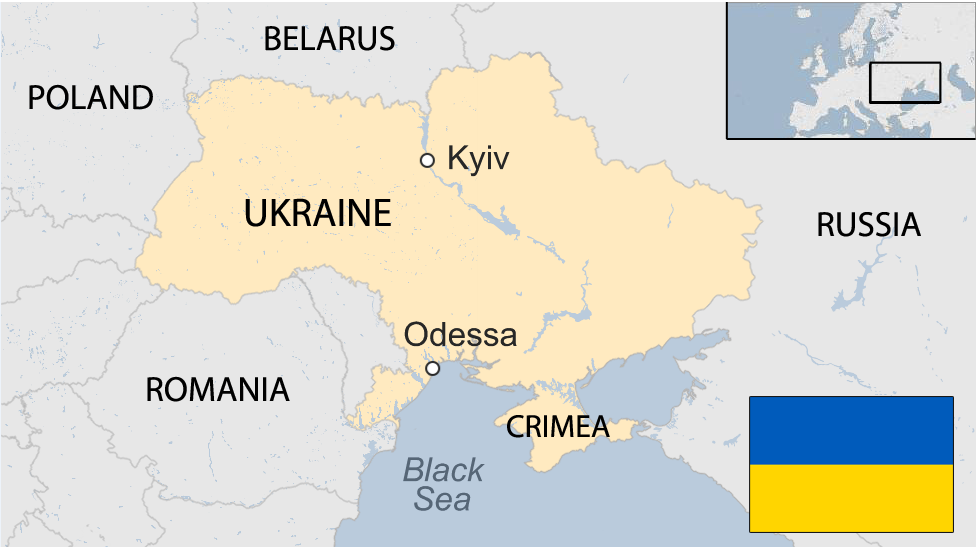Saakashvili: Ukraine deports ex-Georgia president to Poland
- Published
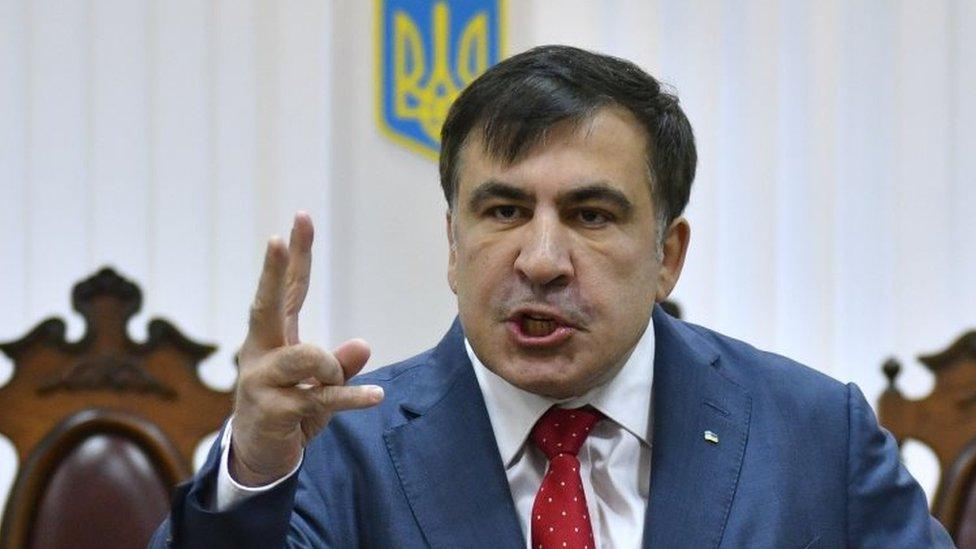
Mikheil Saakashvili led street protests against Ukrainian President Petro Poroshenko
Former Georgian President Mikheil Saakashvili has been deported to Poland, Ukraine's border service says.
It says the 50-year-old was in Ukraine illegally and therefore "was returned to the country from where he arrived".
But his lawyer said the deportation was a "kidnapping".
Mr Saakashvili was made a Ukrainian citizen in 2015, automatically losing his Georgian passport. He was stripped of his citizenship last July and officials now consider him stateless.
His Ukrainian citizenship was removed by his former ally, President Petro Poroshenko, after the two politicians fell out.
Mr Saakashvili is also wanted in Georgia on criminal charges, which he claims are politically motivated.
Last September, he crossed into Ukraine from Poland, helped by his supporters.
What does Ukraine's border service say?
In a statement (in Ukrainian),, external it says Ukraine's immigration officials and police on Monday informed Mr Saakashvili about a court decision to return him to Poland.
However, it says, unidentified supporters of Mr Saakashvili attacked the officials, who were forced "to defend themselves and use force".
Mr Saakashvili was then - "in compliance with all legal procedures" - returned to Poland, the border service says.
Poland's border service confirmed that Mr Saakashvili was now on Polish soil.
Earlier on Monday, Mr Saakashvili's supporters posted a video which they said showed how unidentified men in camouflage detained the former Georgian president in a Kiev restaurant.
Mr Saakashvili's lawyer Ruslan Chornolutsky said it was "a kidnapping and not a detention", Reuters reports.
He said this was because any detention should be "based on either court decision or some other proceeding documents".
This "was not the case", he said.
What's the background to Mr Saakashvili's case?
Last September, a Ukrainian court convicted Mr Saakashvili of illegally crossing Ukraine's border.
In January, another court rejected his plea to get refugee status.
Mr Saakashvili appealed against the decision - but lost the case earlier this month.
Is this a political case?
Ukraine's authorities have repeatedly denied this, saying they have always acted in accordance with Ukrainian law.
But Mr Saakashvili and his supporters say the case is politically motivated.
Mr Saakashvili had led street protests in Ukraine, accusing President Poroshenko of failing to root out corruption and being corrupt himself. The president denies the allegations.
Jonah Fisher watched as Mr Saakashvili's car was surrounded by his supporters and Ukrainian police.
Mr Saakashvili, who also previously served as governor of Ukraine's southern Odessa region, had been detained several times in recent months.
In December, he was memorably freed from a police van by his supporters, then re-arrested only to be released by a judge.
- Published5 December 2017
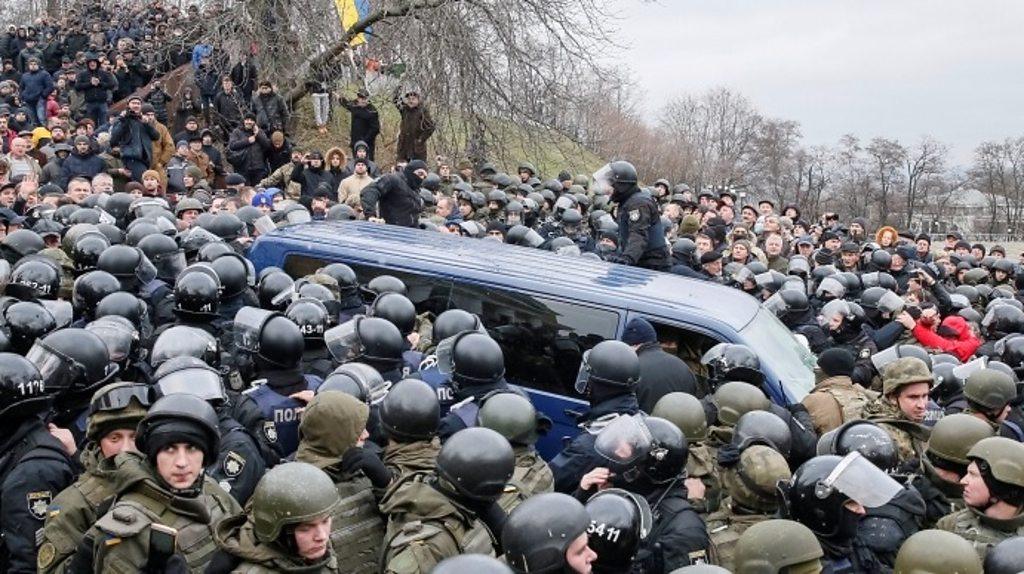
- Published10 September 2017
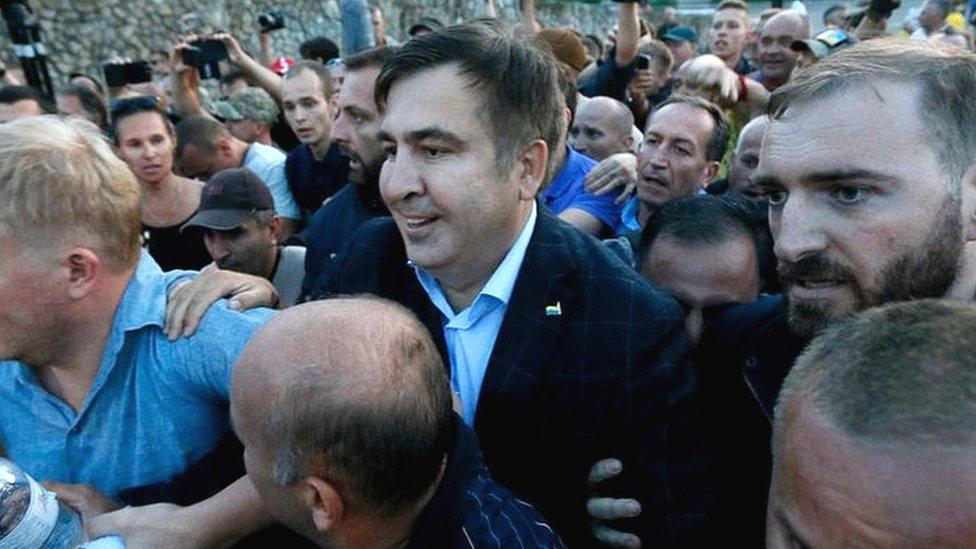
- Published27 July 2017
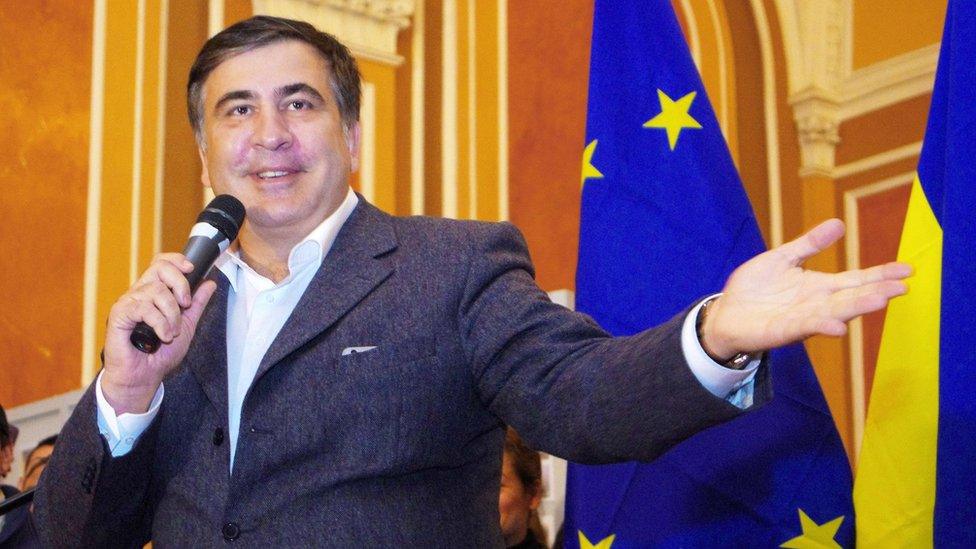
- Published7 November 2016
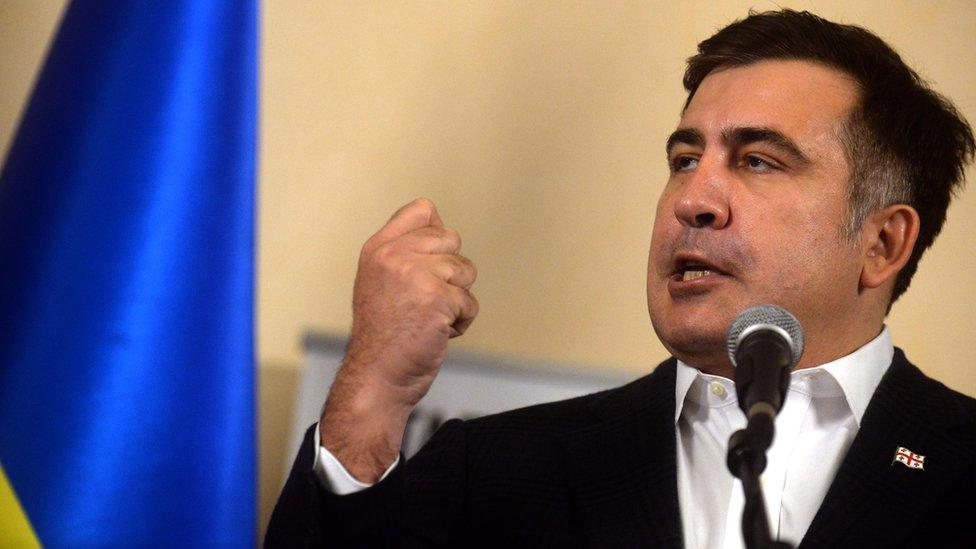
- Published27 January
